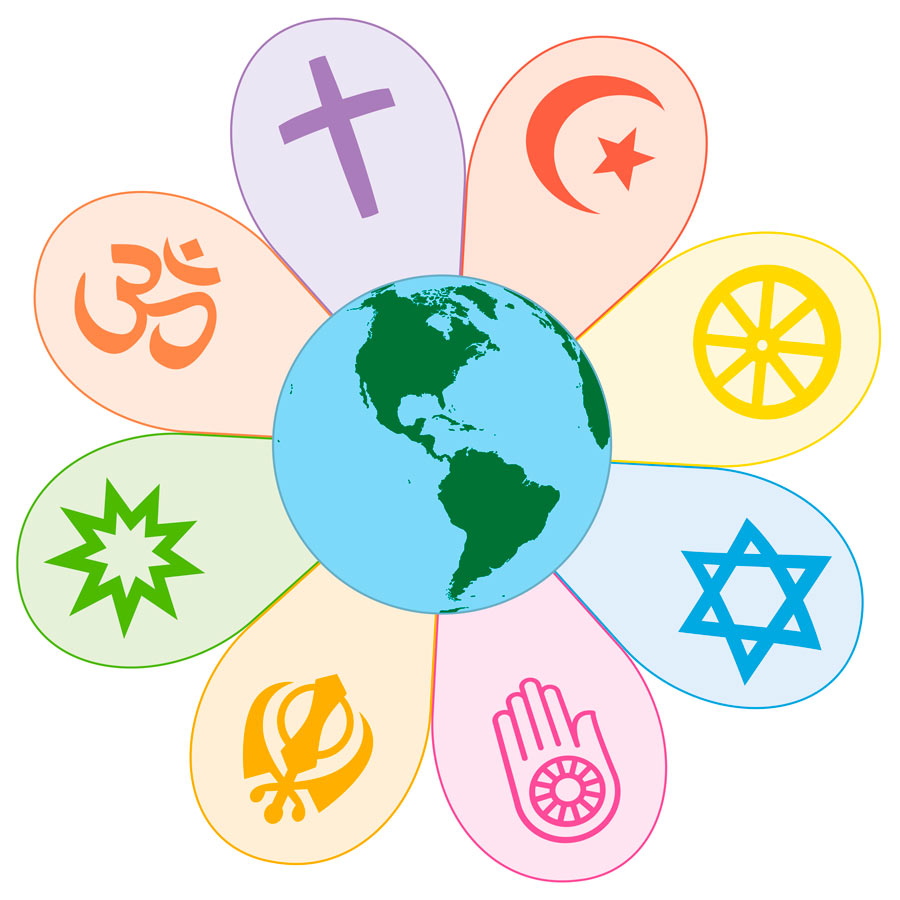The views expressed in our content reflect individual perspectives and do not represent the authoritative views of the Baha'i Faith.
Many of my good friends tell me: “I’m a good person, a spiritual person, so I don’t need religion, especially organized religion…”
I admire this attitude. Yes, my friends are good people who live admirable, virtuous lives. During my lifetime I have met many people who do not belong to a religion and do more good than others who call themselves religious and yet cause strife and division.
Actually, if I didn’t know about the Baha’i Faith and its teachings, I would not want to belong to a traditional religion, either. After all, on the surface it appears that religion was and still is the cause of many wars and much suffering. But by studying the Baha’i teachings, I have come to realize that in their deepest essence, all religions only aim to bring unity and progress.
 The Baha’i teachings say that every religious dispensation brings two different kinds of transformative laws. One category of laws consists of spiritual teachings, and the other consists of social laws and regulations. The social laws and regulations are conditional, and change over time. The social laws of various religions differ because, after all, each divine revelation occurred at a different time and a different place with different circumstances.
The Baha’i teachings say that every religious dispensation brings two different kinds of transformative laws. One category of laws consists of spiritual teachings, and the other consists of social laws and regulations. The social laws and regulations are conditional, and change over time. The social laws of various religions differ because, after all, each divine revelation occurred at a different time and a different place with different circumstances.
On the other hand, the unchanging spiritual teachings in all the religions are the same or very similar—they guide us toward the purpose and meaning of life, show us how to be and conduct ourselves, encourage prayer and meditation, practice detachment from the material world, foster kindness and service towards our fellow human beings and understanding and learning about our true essence. These spiritual teachings emphasize the eternal truths—that God exists, loves His creation and wants each of our souls to thrive and grow.
Without knowing it, my friends who say they are not religious but spiritual are tapping into that eternal spiritual reality that inspires them to be good and spiritual. If you do that, you may be a Baha’i—someone who accepts the oneness of all Faiths.
Even if people like my friends don’t officially belong to a religion, they still try to follow the spiritual teachings that originated and have been diffused throughout history by divine revelations such as Buddhism, Hinduism, Judaism, Christianity, Islam and now in this era the teachings of the Baha’i Faith:
Reality does not admit of multiplicity, although each of the divine religions is separable into two divisions. One concerns the world of morality and the ethical training of human nature. It is directed to the advancement of the world of humanity in general; it reveals and inculcates the knowledge of God and makes possible the discovery of the verities of life. This is ideal and spiritual teaching, the essential quality of divine religion, and not subject to change or transformation. It is the one foundation of all the religions of God. Therefore, the religions are essentially one and the same. – Abdu’l-Baha, The Promulgation of Universal Peace, pp. 364-365.
Religious social laws aim to bring order and justice to advance civilization, however since they are conditional, chaos and confusion ensues when times and circumstances change and people cling to old social laws that do not fit the needs of the time anymore:
The second classification or division comprises social laws and regulations applicable to human conduct. This is not the essential spiritual quality of religion. It is subject to change and transformation according to the exigencies and requirements of time and place. For instance, in the time of Noah certain requirements made it necessary that all seafood be allowable or lawful …. Other laws formerly valid were annulled during the time of Moses …. Such changes and transformations in the teaching of religion are applicable to the ordinary conditions of life, but they are not important or essential. Moses lived in the wilderness of Sinai where crime necessitated direct punishment. There were no penitentiaries or penalties of imprisonment. Therefore, according to the exigency of the time and place it was a law of God that an eye should be given for an eye and a tooth for a tooth. It would not be practicable to enforce this law at the present time …. In the Torah there are many commands concerning the punishment of a murderer. It would not be allowable or possible to carry out these ordinances today. Human conditions and exigencies are such that even the question of capital punishment—the one penalty which most nations have continued to enforce for murder—is now under discussion by wise men who are debating its advisability. In fact, laws for the ordinary conditions of life are only valid temporarily. The exigencies of the time of Moses justified cutting off a man’s hand for theft, but such a penalty is not allowable now. Time changes conditions, and laws change to suit conditions. We must remember that these changing laws are not the essentials; they are the accidentals of religion. The essential ordinances established by a Manifestation of God are spiritual; they concern moralities, the ethical development of man and faith in God. They are ideal and necessarily permanent—expressions of the one foundation and not amenable to change or transformation. Therefore, the fundamental basis of the revealed religion of God is immutable, unchanging throughout the centuries, not subject to the varying conditions of the human world. – Ibid, pp. 365-366.
I have chosen to be a Baha’i because its novel, progressive social and spiritual laws are needed for this time and age. As a Baha’i, and a believer in the essential oneness of all religions, I can actively work on advancing a new unified world civilization.
You May Also Like
Comments

















I really like His nine words, Time changes conditions, and laws change to suit conditions. So very simple in concept and deep in meaning! Like all of the Three Central Figures writing, and the Guardian and the Universal House of Justice, though for more modern times.
Thank you, Rebecca, for this excellent reminder of life's basic purpose and function: To adapt to the times we live in, and to create better times.